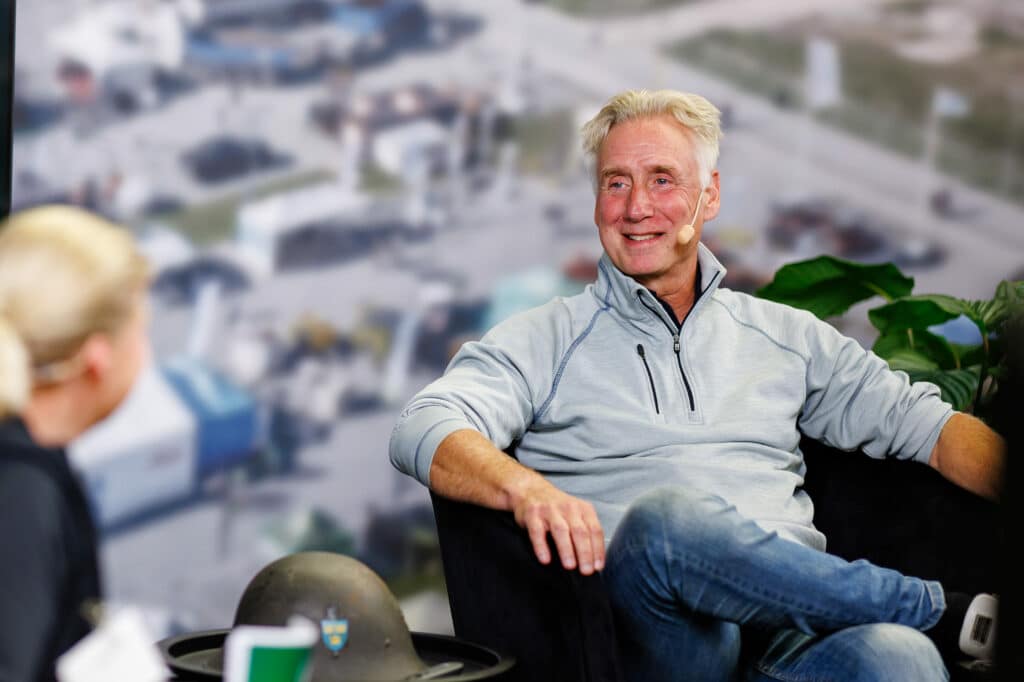It is now clear which company will invest in and build the important underground infrastructure for the Boden Industrial Park.
Boden Municipality has decided to use the public-private partnership (PPP) procurement model to construct the railway and process water pipelines to Boden Industrial Park. PPP means that a private company or consortium is assigned the task of financing, building, and operating a public utility for an extended period. In Sweden, the Arlanda Express has been built using this solution, among others.
At the municipal level it is more rare, but for Boden it has become the choice to enable the necessary infrastructure for the Boden Industrial Park, within the timeframe requested by H2 Green Steel.
– These are substantial investments and for a municipality like Boden, it would not have been realistic to bear the cost. At the same time, the infrastructure is crucial for H2 Green Steel’s establishment to happen,” says Mats Berg, Head of Business Development in Boden Municipality.
Seven kilometers of pipes
On October 4, it was decided that Polar Structure will finance and build the railway, and now it has also been decided that Solör Bioenergi will be commissioned to build the process water solution.
The company will build the infrastructure needed to transport the water from the Lule River to the industrial area. In total, two pumping stations and seven kilometers of piping are needed to handle the volume of water.
Boden Municipality will form a joint stock company with Solör Bioenergi, where Solör will be the majority shareholder with 91 percent, while the municipality will own nine percent, a share based on land value and estimated to be four million kronor.
Solör Bioenergi will then be responsible for financing, construction, maintenance and operation. The estimated construction time is just over a year, with most of the work taking place in 2024.
When the pipelines are in operation, the companies using them pay a fee. This revenue will be used by the municipality to pay off a sum equivalent to the value of the land.
– When we decided to do this, there were of course a lot of questions about conducting PPP procurements. Now we can confirm that the arrangement works and it feels fantastic that we have managed to reach two agreements without having to use any taxpayer funds,” says Mats Berg.
More PPP procurements
The Norrbotten Chamber of Commerce estimates that 1400 billion will be invested in northern Sweden linked to large-scale investments in green steel, renewable energy and electrification.
 Mats Berg, Head of business relations in the municipality of Boden. Photo Mats Engfors, Photographic
Mats Berg, Head of business relations in the municipality of Boden. Photo Mats Engfors, Photographic
– We know that our region is extremely attractive right now and this is also shown by the investment from Polar Structure and Solör Bioenergi. I think we will definitely use PPP procurement on more occasions,” he says, adding:
– At the same time, we have to be careful in evaluating what kind of infrastructure we as a municipality want to have total control over and in which cases PPP solutions may be possible to implement infrastructure investments. There is a safety aspect that is very important to consider.
Sustainable services
Solör Bioenergi is a leading player in renewable energy in Scandinavia and Sweden’s largest private player in water and wastewater, focusing on innovative solutions for a sustainable future. The company actively contributes to the green transition through investments, partnerships and long-term visions.
– “The fact that the municipality of Boden chooses Solör is a great vote of confidence and proof of our investment in qualified water services,” says Hans Viken, sales and marketing manager at Solör Bioenergi.
The company has chosen a strategic direction to play an active role in making Scandinavian industries more sustainable, which is why they have come to Boden.
– We look forward to building and delivering such a vital function as process water to H2 Green Steel for a long time together with the municipality of Bodens. Intensive work will now begin with the other contractors to ensure the project is completed on time.
In addition to water services, Solör produces biofuels from forest industry waste and recycles environmentally hazardous impregnated wood waste. They use the raw materials to produce district heating, steam and electricity.
– In Boden, we will focus on water services this time, but next time it might be energy services. We see many opportunities here,” says Hans Viken.